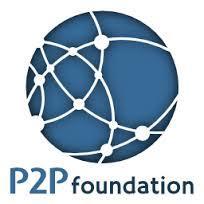“Citizen networks, wireless or not, could become a transversal infrastructral layer, reaching across society and different domains, becoming a revolutionary enabler of a new urban life in a way that points beyond capitalism as we knew it. … Rather than having corporations and the state who centrally organize production and consumption, in such a commons mode of production peer-to-peer forms of cooperation link infrastructural, political and cultural layers. The decentralized utopia envisioned by the 68 generation can now become a concrete project. With citizen networks and decentralized computing power localized exchange economies can be organized.”
Research and publish the best content.
Get Started for FREE
Sign up with Facebook Sign up with X
I don't have a Facebook or a X account
Already have an account: Login
on peer-to-peer dynamics in politics, the economy and organizations
Curated by
jean lievens
 Your new post is loading... Your new post is loading...
|
|














